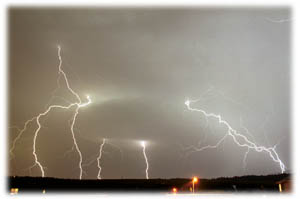


| Personal | Professional | Christian Stuff | Photographs | Miscellaneous | Blog |
Admin |

|

|

|
|||||||||
|
|||||||||||
| The aorist tense "presents an occurence in summary, viewed as a
whole from the outside, without regard for the internal make-up of the
occurrence" (Fanning, 97). It may be helpful to think of the aorist
as taking a snapshot of the action while the imperfect (like the present)
takes a motion picture, portraying the action as it unfolds. In the indicative,
the aorist usually indicates past time with reference to the time of speaking
(thus, "absolute time"). Aorist participles usually suggest antecedent
time to that of the main verb (i.e., past time is a relative sense).
1. Constative (Complexive, Punctiliar, Comprehensive, Global) Aorist The aorist normally views the action as a whole, taking no interest in the internal workings of the action. It describes the action as bare fact.
The aorist tense is often used to stress the beginning of an action or the entrance into a state. Unlike the ingressive imperfect, there is no implication that the action continues. This is simply left unstated.
The aorist if often used to stress the cessation of an act or state. Certain verbs, by their very lexical nature, almost require this usage. For example, "he died" is hardly going to be an ingressive idea. The context also assists in this usage at times: It implies that an act was already in progress and the aorist then brings the action to a conclusion.
The aorist indicative is occasionally used to present a timeless, general fact. When it does so, it does not refer to a particular event that did happen, but to a generic event that does happen. Normally, it is translated like a simple present tense.
This is the use of the aorist in the espistles in which the author self-consciously describes his letter from the time frame of the audience.
The aorist indicative can be used to describe an event that is not yet past as though it were already completed in order to stress the certainty of the event.
The aorist tense can be used of an event that happened rather recently. Its force can usually be brought out with something like "just now," as in "just now I told you."
|